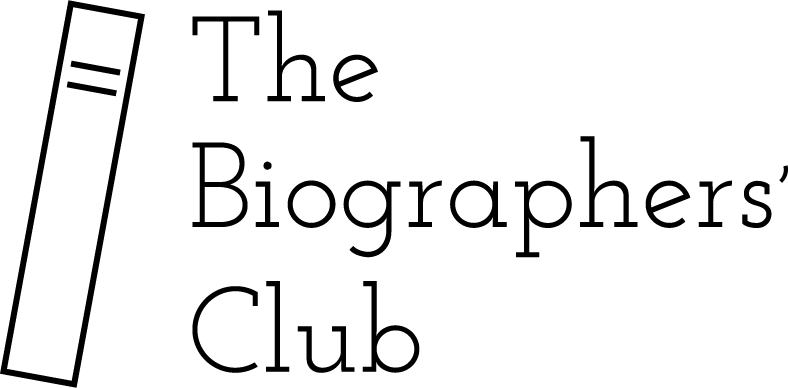NOVEMBER 25, 2021
Tony Lothian Prize 2021
Our shortlist for the best proposal for an uncommissioned biography received in 2021 is just announced, and the prize will be awarded at the Biographers’ Club Christmas party on Tuesday 8th December
Helen Bain: Court Green – Sylvia Plath in Devon 1961-2
Here is an entirely new account of Sylvia Plath, portrayed through the eyes of the locals she encountered during her sojourn at North Tawton in Devon in the last years of her marriage. It is these various and unassuming side-perspectives of a blow-in American poet – a somewhat exotic arrival in a local market town – that Helen Bain draws together in her refreshing account. We encounter Plath anew, initially unrecognisable as the poet constructed in the popular imagination, hemmed in by myth and overshadowed by suicide. In this way, Bain creates instead a sense of the limitless possibilities that constitute the daily experience of every individual.
Sarah Harkness: Alexander Macmillan, Advocate for the Ignorant – The Life and Times of a Victorian Publisher
2018 marked the 175th anniversary of the House of Macmillan, a major international publishing business founded by a man born in poverty in Ayrshire with only a rudimentary education. How did Alexander Macmillan build so much from such slim advantages? His career illustrates perfectly the pillars of the Victorian character: business acumen matched by fierce ambition, intellectual enquiry informing social philanthropy, mingled with strong devotion to family life. He counted the greatest intellects of the age among his friends and authors, Tennyson, Carlisle, Gladstone, Arnold and Hardy among them. He admired strong, independent women and promoted the careers of women writers such as Millicent Fawcett, Margaret Oliphant and Charlotte Yonge. Sarah Harkness evokes a warm-hearted, amusing yet driven man whose influence was immense, popularising the classics and spreading radical ideas across the middle classes and into mass culture.
Sharon Mather: Poets, Painters and Players – The Private Life of
Edward Marsh
Edward Marsh was a polymath who led a remarkable life. Immersed in the artistic and literary circles of his day, he also served as loyal and constant Private Secretary to Winston Churchill. His memoir serves as a Who’s Who of the early twentieth century, its poets, painters, politicians and players: from Rupert Brooke and Somerset Maugham to Noel Coward and Ivor Novello. Yet he stood in the shadows, living vicariously and working behind the scenes, whether as patron, champion, intimate friend or romantic companion. This book draws him into the centre of the stage, filling the numerous gaps in the chronicles of his life, and those of his countless friends. In so doing, it conjures a cultural world and an era afresh, and what emerges – aside from the fascinating anecdotes – is the vast scope and impressive legacy of his pervasive influence.
Amy Ripley: Passion and Power – The Life and Loves of Ann Fleming and Laura, Duchess of Marlborough
Ann and Laura Charteris were two spirited aristocratic sisters who enjoyed a gilded life, collecting husbands, friends and adventures along the way. Ann became the last of the great society hostesses, marrying first Lord Rothermere then Ian Fleming, the love of her life, and recording their many ups and downs in coruscating correspondence with Evelyn Waugh among other friends. Her sister Laura, married four times, was a woman whose determination to live life on her own terms scandalised society. Their wealth and privilege could not protect them from tragedy and heartbreak, however, and their story, drawn from previously unpublished personal papers, contributes to an alternative women’s history of the twentieth century.
Jane Winter: All Things to All Men – The Fate of Rupert Brooke
The poet Rupert Brooke has inspired endless fascination and many biographies, but how true are the myths that surround him? Jane Winter examines, through first-hand evidence, his enigmatic persona as romantic lover, war hero, war poet – and questions its authenticity. By being ‘all things to all men’, Brooke lost sight of his real identity, she argues, leading to his critical breakdown shortly before his death. In tracing the growth and decline of his posthumous reputation, Winter explores the gap between an actual life and what can become of it in the public imagination, raising important questions for all biographers of well-known figures. She offers a refreshing reevaluation of an ever-intriguing figure and of the nature of personal myth.
Benjamin Wright: Centurion of the Inner Circle – The Secret Service of Ronnie Sinclair
Ronnie Sinclair was the alias of a British Intelligence office born Reginald Teague-Jones in 1889. Peter Hopkirk wrote about Sinclair’s service during the Great War but the rest of his career remains unknown to the public. Benjamin Wright places Sinclair where he deserves to be: at the heart of the counter-intelligence effort against numerous adversaries in the first half of the twentieth century. Brought up in St Petersburg, he was caught up in the Caucasus and Central Asia during the Russian Civil War, and as an ‘agent of British imperialism’ he became a fall-guy for the Bolsheviks in their foundation myth of the Soviet Union. Minutely researched and pacily written, Sinclair’s story provides an important key to the shadowy world of espionage in the first half of the twentieth century.

